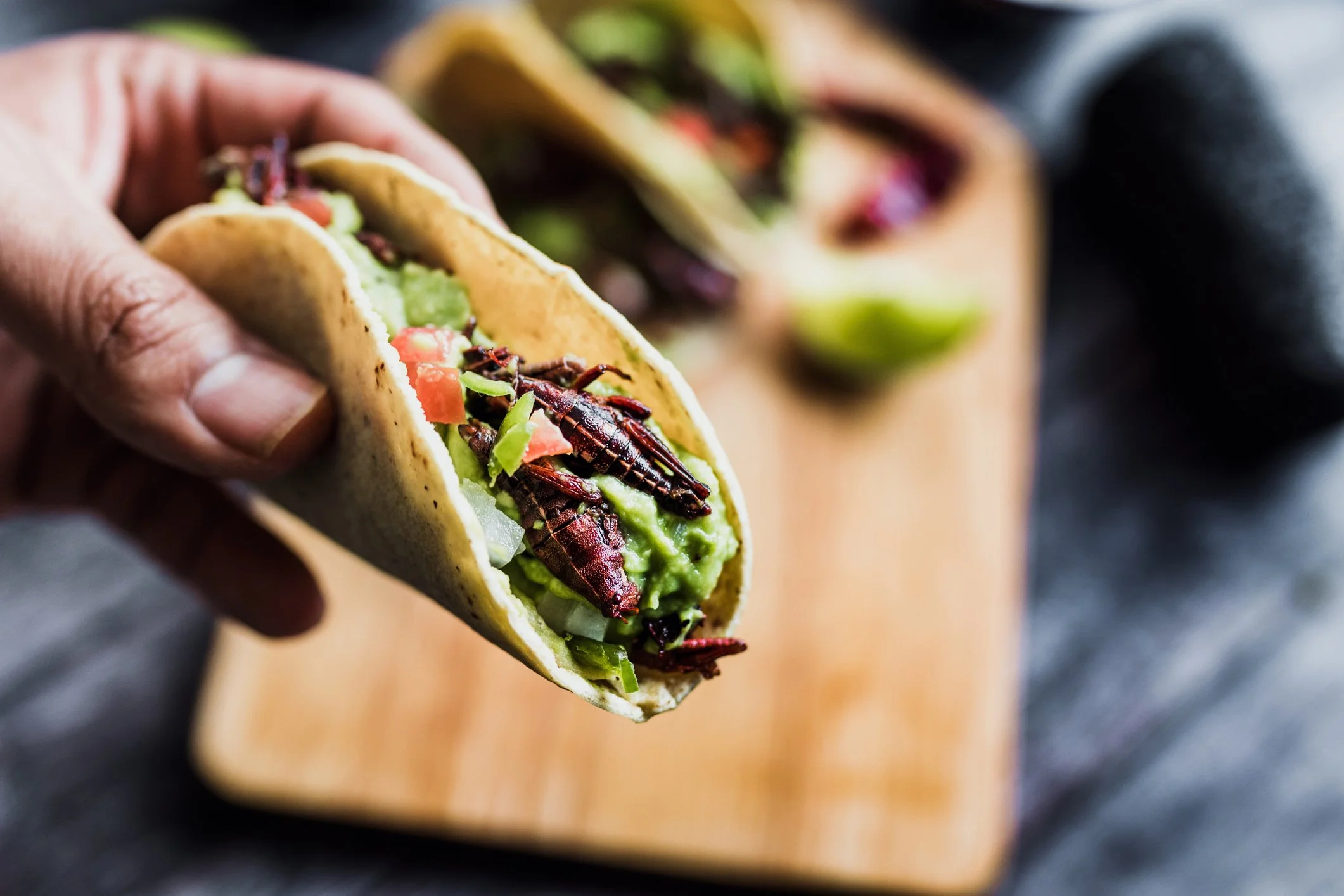Eating insects? It may sound bizarre, but it's the norm for billions of people worldwide. And we're not just talking about the worm in a bottle of tequila.
The appetite for bugs, known as entomophagy, isn't a new thing. Throughout history, people have relied on eating bugs not just for added nutrients but also to survive. Hunter-gatherers ate them tens of thousands of years ago! And still today, the tradition has been preserved across the globe.
Insects remain a staple ingredient across the world today. According to the United Nations Food and Agriculture Organization, some 2 billion people around the world already eat insects to supplement their diet.
By the year 2050, the world population will reach ten billion. The problem? Food production is already unsustainable, and we will need to double our production to meet the population's growing needs. And the cost of traditional protein options is continuing to rise.
In the last year, the price of processed chicken went up 20% while the cost of eggs skyrocketed over 100%, according to the National Restaurant Association.
With rising food costs and the increasing need to curb our environmental impacts, insects are becoming a popular alternative to pork, chicken, and beef.
More and more restaurants and home chefs are turning to options such as crickets and ants as an environmentally friendly and nutritious alternative.
Old McDonald Had … an Insect Farm?
Let's dig into how insect farming can benefit the earth and our health!
Insects Will Save the Planet
Raising large warm-blooded animals accounts for nearly 20% of the world's greenhouse gases, according to the American Association for the Advancement of Science.
Scientists realize that raising bugs puts a significantly smaller strain on the environment.
Insects spend hardly any energy keeping themselves warm and thus produce significantly less greenhouse gases than, for example, cows. Crickets, for example, produce 90 percent less methane and 99.7 percent less nitrous oxide than cows.
And farming crickets requires eight to 14 times less land and five times less water than raising cows (to produce the same amount of protein).
Nutrient Powerhouse
Ditch the pre-workout for some ants instead! Red ants yield about 14 grams of protein per 3.5-ounce serving as well as a whopping 71% of the recommended daily allowance of iron. Insects are considered a high-quality protein source, with most insects providing 9 times more protein compared to beef.
Caterpillar Kabobs are packed full of crunch and protein!
And, unlike cows, chickens, and pigs, insects are packed with fiber, making them an excellent source of prebiotics.
Restaurants Serving Insects in the US
There is a lot of BUZZ around insects in the culinary world! If you are curious about the flavor profile of these protein-packed critters, here's the scoop: most insects have a nutty flavor and are relatively mild, like shrimp and chicken.
If you're keen to try them out, here are some restaurants to check out:
Bakan in Miami, Florida
Head to Miami and feast on tacos full of worms. Bakan is a Mexican restaurant that serves up pan-fried agave worms with a dollop of guacamole inside a blue corn tortilla.
Try the escamoles, and you can sample sauteed ant eggs in butter with shallots, epazote, and guacamole.
Oyamel in Washington, D.C.
The insect taco trend continues at Oyamel. The restaurant has sauteed chapulines (grasshoppers), an Oaxacan specialty. The chef, José Andrés, has been serving grasshoppers for over a decade in tacos and tortillas.
The Blank Ant in New York, New York
The name says it all. On New York's Second Avenue, you'll find chef Jorge Guzman serving black ant guacamole to hungry patrons. The dish is even topped off with ant salt!
Some of the other insect dishes include grasshopper-crusted shrimp and yucca-manchego grasshopper croquettes.
La Condesa in Austin, Texas
Do you love restaurants with secret menu items? Then make your way to La Condesa in Texas.
Ask for the toasted chapuline tacos, and you'll get grasshoppers with avocado puree, garlic epazote, lime juice, and two salsas.
El Catrin in Toronto, Ontario
At El Catrin, chef Oliver Le Calvez uses crickets as an optional extra with his guacamole. The reason? Oliver loves the texture, flavor, and protein the insects bring to the dish.
Other bug-based menu items include worm salt for salad dressing and crunchy ants in salsas.
Roasted crickets have a nice crunch that can be a great addition to many dishes! (photo courtesy edibleinsects.com)
At home bug cookin’
Curious about incorporating this new ingredient into your home menu? Bug Farm Foods is an excellent resource for recipes such as Buggy Banana Bread or Honey and Miso Fried Locusts!
While it may be tempting to snack on bugs found in the wild, it is ill-advised. Neighborhood insects may be covered in contaminants or harmful chemicals.
It is much safer to purchase your ingredients from reputable sources such as Entosense, a Maine-based company that specializes in shipping ready-to-eat bugs across the country.
The Last Bite
It is clear that insects are packed with nutritional value, and their flavor profile is actually quite similar to traditional meat sources.
Most importantly, they have enormous potential as a sustainable protein source, especially in comparison to farm-raised cows and chickens.
How and what we eat is always changing. For example, it wasn't too long ago that people were dining on pigeons and the idea of eating chicken was unheard of!
With billions of people dining on bugs across the world, there is no reason that the rest of the population can't dig in!
Which insects are you going to try first?
Melissa Dimmitt, Marketing Manager
Melissa is the Marketing Manager for Menufy by HungerRush. She began working with restaurant managers and executive chefs over a decade ago, coordinating seasonal menu releases, executing photoshoots, and creating fresh digital content.




